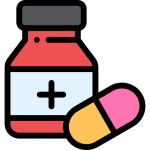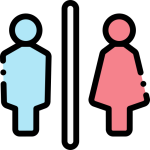Managing Incontinence
About half of stroke survivors admitted to the hospital will experience loss of bladder control, and about a third will experience loss of bowel control. This is called incontinence.
This can be very distressing for both the stroke survivors and their caregivers. For many, it can be a very sensitive and personal issue that causes embarrassment or a loss of dignity.
While many stroke survivors experience incontinence early on, it has been reported that only 15% will continue to have continence problems a year after their stroke. These are common issues survivors experience and tips for managing post-stroke incontinence.
Common Post-Stroke Continence and Bowel Problems
- Frequency – need to urinate often
- Urgency – sudden, urgent, and uncontrollable need to urinate
- Nocturnal incontinence - loss of control while sleeping (bedwetting)
- Functional incontinence - when physical disabilities impede the person’s ability to get to the toilet in time (loss of mobility, inability to unfasten clothes in time, etc.)
- Stress incontinence - leaking of urine when the person coughs, sneezes or laughs
- Reflex incontinence – passing urine without releasing it
- Overflow incontinence – leaking of the bladder due to it being too full
- Fecal incontinence - uncontrolled bowel movement
- Constipation with overflow – watery stool leakage when large stool gets stuck and blocks the bowel
- Fecal Impaction – dry, hardened stool collected in the rectum
Treatments for Bladder Incontinence
- Bladder training
- Pelvic floor exercises
- Bladder stimulation
- Medication
- Weight loss
Treatments for Bowel Incontinence
- Bowel training
- Medication
- Laxatives
- A bowel regimen
- Dietary changes
Managing Your Loved One’s Incontinence at Home
- Find the right incontinence products (absorbency pads or pull ups)
- Use washable seat pads to protect furniture
- Use mattress protectors
- Get a commode for easy toilet access
- Plan access to toilets when outside of the home
- Bring a change of clothes and hygiene kit when going out
- Establish a daily toileting routine of regular visits to the toilet
- Wear a silent, vibrating alarm watch to discreetly remind you of toileting routine
- Limit drinks that irritate the bladder and bowels (e.g. caffeine or alcohol)
- Encourage a balanced diet plan with plenty of fiber (e.g. fruits and vegetables)
- Keep your loved one as active as possible to help stimulate bowel movement
- If your loved one has aphasia, establish a way for them to communicate to you when they must use the toilet (e.g. ringing a bell)
- Have your loved one wear clothes that are easier to unfasten and remove (e.g. velcro, elastic waistbands, etc.)
- Help your loved one practice good hygiene to avoid urinary, bladder, or skin infections
Click on the tiles below for some tips for caregivers who care for stroke and aphasia survivors.
Medications

Modifying Your Home

Managing Incontinence

Nutrition and
Meal Plans

Dealing With Post-Stroke Depression

Caring For Someone Who Can't Speak After A Stroke

